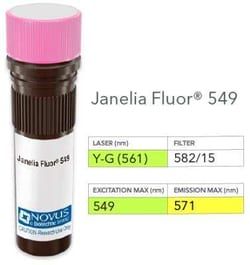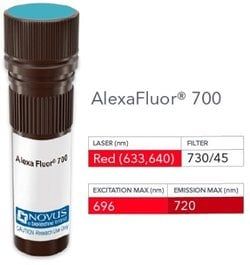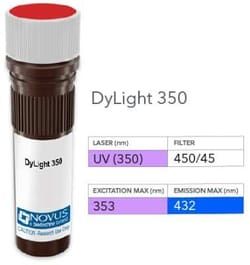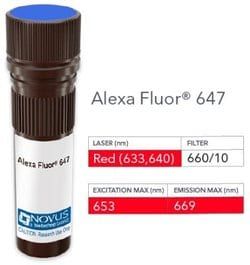Bcl-6 Antibody (BCL6/1982) - Azide and BSA Free, Novus Biologicals™
Manufacturer: Novus Biologicals
Select a Size
| Pack Size | SKU | Availability | Price |
|---|---|---|---|
| Each of 1 | NBP275749-Each-of-1 | In Stock | ₹ 57,494.00 |
NBP275749 - Each of 1
In Stock
Quantity
1
Base Price: ₹ 57,494.00
GST (18%): ₹ 10,348.92
Total Price: ₹ 67,842.92
Antigen
Bcl-6
Classification
Monoclonal
Concentration
0.2 mg/ml
Dilution
ELISA, Immunohistochemistry-Paraffin 1-2 ug/ml
Gene Accession No.
P41182
Gene Symbols
BCL6
Immunogen
Recombinant human bcl-6 protein fragment (around aa256-389) (exact sequence is proprietary) (Uniprot: P41182)
Purification Method
Protein A or G purified
Research Discipline
Cancer, Cell Cycle and Replication, Tumor Suppressors
Gene ID (Entrez)
604.0
Target Species
Human
Form
Purified
Applications
ELISA, Immunohistochemistry (Paraffin)
Clone
BCL6/1982
Conjugate
Unconjugated
Formulation
10 mM PBS with No Preservative
Gene Alias
B-cell CLL/lymphoma 6, B-cell lymphoma 6 protein transcript, BCL-5, BCL5B-cell lymphoma 5 protein, BCL-6, BCL6A, cys-his2 zinc finger transcription factor, LAZ3ZBTB27B-cell lymphoma 6 protein, lymphoma-associated zinc finger gene on chromosome 3, Protein LAZ-3, Zinc finger and BTB domain-containing protein 27, Zinc finger protein 51ZNF51, zinc finger transcription factor BCL6S
Host Species
Mouse
Molecular Weight of Antigen
95 kDa
Quantity
100 μg
Primary or Secondary
Primary
Test Specificity
Recognizes a protein of 95kDa, which is identified as Bcl-6. Antibody to bcl-6 is helpful in a number of diagnostic settings: (1) In the differential diagnosis of small B-cell lymphoma. Follicular lymphoma will show bcl-6 (and CD10) positivity whereas other small B-cell lymphomas are usually negative. (2) Bcl-6 is an important prognostic marker in diffuse large B-cell lymphomas (DLBCL), where CD10, bcl-6 and MUM1/IRF4 are used to identify germinal center and activated B-cell phenotypes. (3) Bcl-6 can be valuable in distinguishing classical Hodgkin lymphoma from nodular lymphocyte predominant Hodgkin lymphoma (NLPHL). The Reed-Sternberg cells of classical Hodgkin lymphoma are bcl-6 negative whereas the large ('LH') cells of NLPHL are bcl-6 positive. In contrast, anti-Bcl-6 rarely stains mantle-cell lymphoma and MALT lymphoma.
Content And Storage
Store at 4°C.
Isotype
IgG1 κ
Description
- Bcl-6 Monoclonal specifically detects Bcl-6 in Human samples
- It is validated for ELISA, Immunohistochemistry, Immunohistochemistry-Paraffin, Protein Array.





